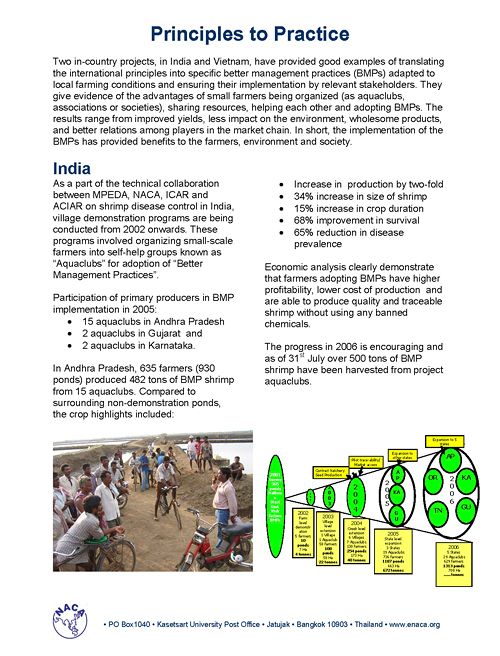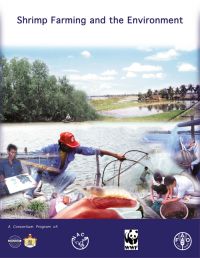Principles to practice
24 September 2006 | 944 Downloads | .pdf | 147.83 KB | Better management practices, India, Livelihoods, gender and social issues, Shrimp, Environment and Sustainability, Vietnam
Two in-country projects, in India and Vietnam, have provided good examples of translating the International Principles on Responsible Shrimp Farming into specific better management practices (BMPs) adapted to local farming conditions and ensuring their implementation by relevant stakeholders. They give evidence of the advantages of small farmers being organized (as aquaclubs, associations or societies), sharing resources, helping each other and adopting BMPs. The results range from improved yields, less impact on the environment, wholesome products, and better relations among players in the market chain. In short, the implementation of the BMPs has provided benefits to the farmers, environment and society.
Creative Commons Attribution.

